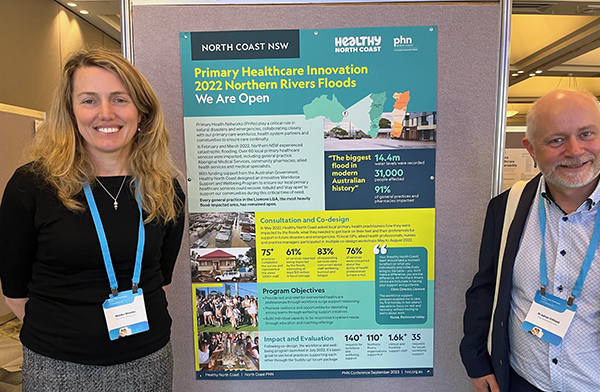The Medicare program was set up in 1984 (by the then-Labor Government) as a Universal Health Care Insurance scheme that partially or fully covered most healthcare services in Australia.
It has served Australians well for many years, providing free primary healthcare services through payments for GP services on a fee-for-service basis.
As healthcare has become more complex, with a rising number of people living with chronic disease, often with multiple conditions and different healthcare professionals providing services, the traditional fee-for-service model has become increasingly inequitable.
Healthcare providers who provide specific specialist services, particularly certain specialist procedures, receive more generous remuneration than generalists who look after the whole person.
It is much harder to define specific service items for healthcare providers providing holistic, comprehensive care with multiple conditions than it is items for a certain procedure, even though we know that good primary care provides better long-term outcomes.
The laws of supply and demand encourage health practitioners to specialise in specific areas, particularly in medicine, where we have seen an increase in the number of non-GP specialists and a relative reduction in the number of GPs and generalists, resulting in a crisis of primary care access, particularly in regional and rural areas.
In order to remunerate GPs and generalists adequately for complex patient care, we need to know who is providing that care.
This is where My Medicare, the Labor Government’s name for Voluntary Patient Registration (VPR), comes in, following bipartisan support for the 10-year Primary Healthcare Plan and the new “Strengthening Medicare Taskforce”.
VPR is a key building block for many other planned reforms. It is aimed at ensuring that funding for people with complex conditions goes to the right healthcare provider.
MyMedicare will be available for patient registrations from 1 October 2023. Patients can enrol with their preferred general practice and a specific GP who is registered with MyMedicare. This registration is a two-way street, and the practice and the GP will also have to accept the patient.
Key benefits of MyMedicare registration
- Registered patients will receive greater continuity of care with their nominated MyMedicare practice, leading to improved health outcomes. MyMedicare practices will have access to more information about their registered regular patients, making it easier to tailor services to fit patient needs. MyMedicare provides a new platform to deliver funding reform for primary care through new blended funding models - a mix of fee-for-service MBS items and incentive payments.
MyMedicare will not result in a move to capitation. The claiming of MBS items not specifically linked to MyMedicare will be unaffected by MyMedicare registration and associated incentives.
New MBS items and incentive payments will be linked to MyMedicare registration progressively from November 2023, and a review of current general practice incentives will inform future design and delivery.
Key dates
November 2023
- Longer MBS-funded telephone calls (Levels C and D)
- Access to triple bulk billing incentive for longer MBS telehealth consultations for (Levels C, D and E) for eligible patients
July 2024
- Geographically phased rollout of new incentives for general practices to provide wraparound care for people with complex, chronic conditions who are frequent hospital users.
August 2024
- General Practice in Aged Care Incentive (GPACI) - rewarding proactive and preventative care through regular health assessments, care plans and GP visits for people in residential aged care homes, and including MyMedicare.
November 2024
- Chronic Disease Management items linked to a patient's MyMedicare registration
There is no rush to register your patients on MyMedicare. Start with those with the most complex care needs and gradually increase the numbers from there.
With MyMedicare in place, hopefully GPs can look forward to an improved likelihood of receiving hospital discharge summaries for the patients under their care. Plus, when a patient may need a Chronic Disease Management Plan, there’ll be less concern about it being handled by a new corporate general practice located on the other side of town.
Voluntary patient registration promotes continuity of care, strengthens the relationship between general practice and their own patients, and helps practices to better understand and meet their patients’ needs.
















